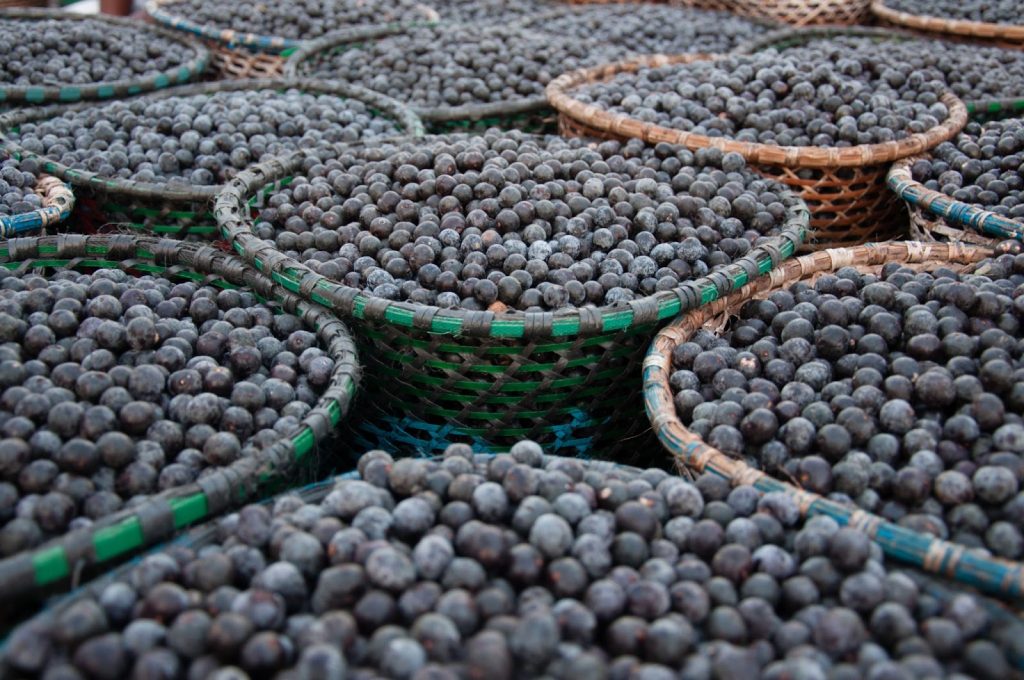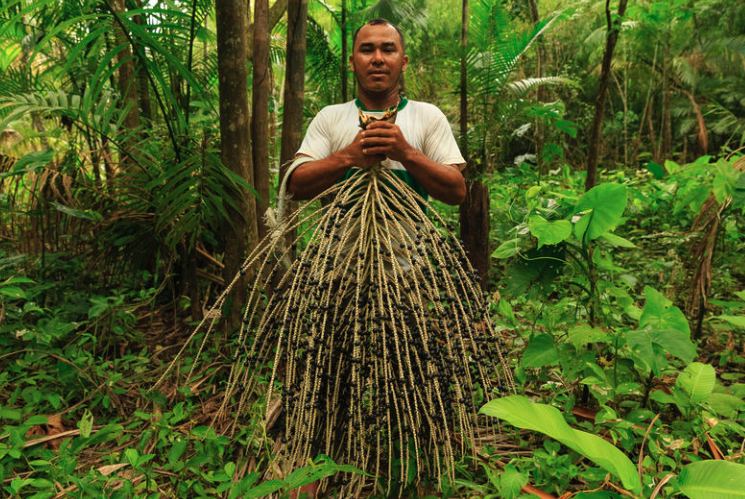Image by Nossa Fruits.
In 2023, we have faced unprecedented consequences of climate change, with temperature records breaking and extreme weather events such as storms, floods, droughts, and heatwaves causing widespread devastation. Despite these alarming developments, a concerning trend emerges as the new UN Environment Programme’s Adaptation Gap Report reveals that progress in climate adaptation is slowing down at a time when it should be accelerating to effectively address the growing challenges posed by climate change.
The communities most severely impacted by climate change are often those in developing countries, despite their minimal contribution to the problem. In the heart of the Amazon rainforest, a French Brazilian açai products company, Nossa Fruits, is set on reversing this and paving the way for positive change by redefining sustainable agroforestry and climate resilience in the area. The Landscape Resilience Fund (LRF) has extended new pre-investment support to strengthen their efforts. This strategic partnership reinforces LRF’s mission to support SMEs in fostering climate adaptation across developing nations.
“We are constantly looking for innovative changemakers with strong values, courage, and grit. We have found one such entrepreneur in Damien Binois and his business Nossa Fruits. We are excited to work together to increase the incomes of Amazonian communities and develop climate-resilient agroforestry systems.”
Urs Dieterich, Managing Director of the Landscape Resilience Fund
Açai beyond culinary appeal

Açai berries have a unique nutritional composition. Extremely rich in antioxidants and minerals, açai has low levels of sugar whilst containing high-quality fats and high levels of fibre. Studies suggest they may help boost cognitive function, protect heart health, and prevent cancer. As such, açai is touted as a superfood with growing popularity across the world.
However, Açai is not just a trendy culinary delight, as it plays a fundamental role in the food security and livelihoods of the ribeirinhos in the Amazon estuary region. The pulp of these fruits serves as a primary caloric source during the main production season and stands as one of the most lucrative non-timber forest products (NTFPs) for both the Brazilian economy and rural communities in the Amazon estuary. It is the main household income sourcefor over 80% of the local population during the harvest season.
Who is Nossa Fruits?
Founded in 2012, Nossa Fruits is committed to sourcing 100% certified organic frozen produce from the state of Pará, Brazil, in the Amazon rainforest. They place the protection of Amazonian landscapes and the development of equitable and inclusive practices for local populations at the core of their mission.
Acknowledging their responsibility to the Amazon rainforest, Nossa Fruits actively engages in low-impact açai agroforestry management, contributing to the adaptation of açai smallholders to climate change while protecting the açai ecosystem itself. Collaborating closely with local cooperatives and research institutions like EMBRAPA and EMATER, Nossa Fruits enhances adaptive capacities, facilitates knowledge exchange, and strengthens community bonds. The positive impacts ripple beyond agriculture, fostering gender equity and promoting biodiversity.
However, like many açai product companies outside Brazil, Nossa Fruits grapples with a model relying on intermediaries for local açai processing and freezing. While functional, this approach limits traceability and comprehensive training in sustainable practices for producer families. Currently, Nossa Fruits collaborates with 19 local producer families for fair-for-life certified açai pulp.
To further embed climate resilience into its business model and maximise the support of smallholders, the company envisions constructing their own off-grid factory. Therefore, allowing them to purchase directly from smallholder cooperatives and assume management over the entire production process—from washing the fruits to extracting the pulp, pasteurising, packaging, and ultimately deep freezing them. This approach would not only give Nossa Fruits full control over their supply chain and provide unprecedented traceability, but also help facilitate the implementation of smallholder farmer training programs, child labour monitoring, and impact measurement
The launch of the factory is slated for 2024 and will be powered by solar energy. By 2029, the factory will expand and include a biomass plant fuelled by leftover açai seeds from pulp production, further reducing its environmental impact. Further capacity expansion is planned with a second factory for 2031 in the region.
Beyond açai, Nossa aims to improve and diversify the livelihoods of the smallholder farmers they source from. Nossa plans to support them in cultivating and collecting other crops such as guarana, cocoa, acerola, cupuaçu, and pineapple. Moreover, they plan to harvest ingredients for cosmetics and pharmaceuticals such as andróba, murumuru, and buriti. All of which could be processed directly in its local factory. Given that the açai growing season is only four months per year, this diversification aims to ensure stable incomes for smallholders year-round.
LRF accelerates the financing of climate adaptation

As a leading açai brand in Europe with a decade of experience, an extensive network, and established distributor relationships, Nossa Fruits is poised for continued growth. The LRF is proud to be contributing to their mission by providing them with GEF-funded pre-investment support to help prepare Nossa for the construction of their new factory in the Amazon, making them the first European company to do so.
Additionally, the LRF will assist in developing policies and procedures for their environmental and social risk management, as well as tools for climate resilience impact measurement and fundraising. This support aims to reduce uncertainties and enhance the success of Nossa Fruits’ climate-resilient initiatives.
“Our collaboration with the LRF has been very rich as we share a similar vision of impact, especially on the relations between social and environmental issues in developing countries. The pre-investment support from the LRF is key in our plan to build the most sustainable practices in açai berry production in the Brazilian Amazon. It will make our project not only stronger but also more appealing to our future investors.“
Damien Binois, founder and CEO of Nossa Fruits
The partnership between Nossa Fruits and the Landscape Resilience Fund signifies a significant step towards building climate adaptation in the Amazon at a time when it is needed most. Nossa Fruits sets a powerful example for companies worldwide, demonstrating that business and sustainability can mutually reinforce each other, especially when guided by a commitment to environmental stewardship and community well-being.
